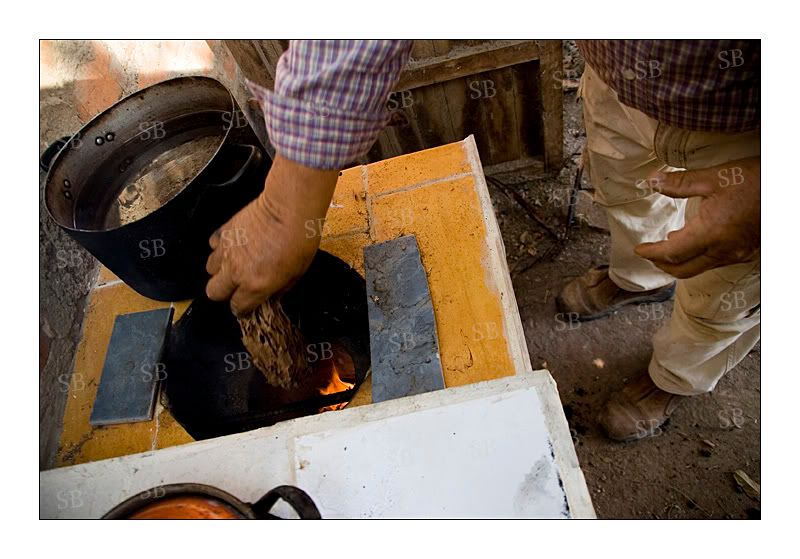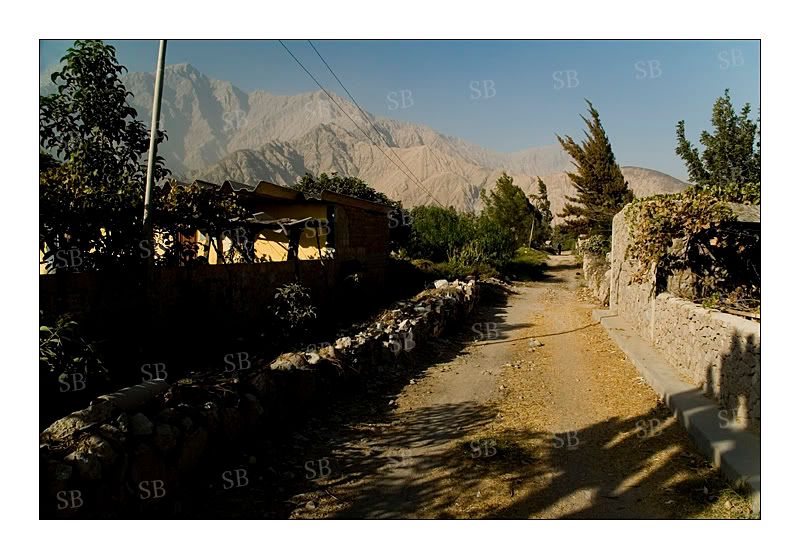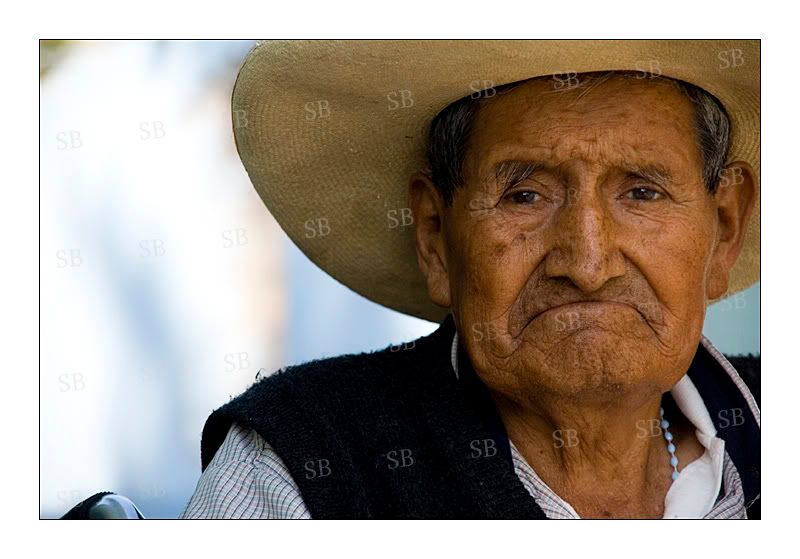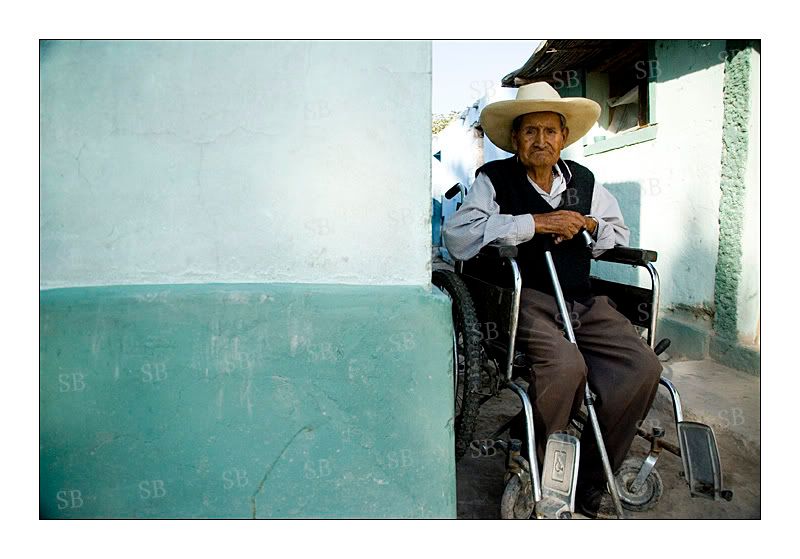Sorry folks... this one's a novel.
(And as an update from Friday night in Arequipa… to make a long story short… i have my rainfly.)
As another calm night falls over the Majes Canyon, i am making preparations to draw my time here in Aplao to a close. i am taking my final pictures, cramming as many as-yet unfulfilled ideas in as i can, packing my bags, and settling in for one last night in the tent for a little while—although for how long i cannot yet say.
For any of you who may have had some idea of my projected itinerary before i left… you would do well to fold such ideas up neatly and toss them into the trash… or perhaps make practical use of them and burn them.
For after a few days in Arequipa hammering down some logistical points it appears that i shall be putting my backpack on my soldier (much like the good little soldier?), traveling to Cusco to spend some time with relatives that i have who live nearby. They have graciously invited me to come help them with and to document their work, and i am very excited about this opportunity.
Cusco was the capital of the Inca Empire, which once stretched from Colombia to Chile—3,000 miles in length—and boasted arguably the most sophisticated and best designed infrastructure in the world at its height.
My relatives—the Powlisons—work with an indigenous Quechua population a short distance outside of town. i have worked with Quechuas in other parts of Peru, and have truly grown to love the Quechua language and culture. This also gives me a chance to hang out with Elena again, who became the Quechua side of my family tree after being adopted by the Powlisons. She’s awesome.
My time here in Aplao has been well-spent, i feel, if slightly different from expected. i feel that i was able to do some successful landscape photography, i was able to have some time to slowly adjust to being in Peru, i was able to eat a lot of ice cream, i was able to explore the countryside, i was able to enjoy the company of Julio and Durby, i was able to polish my Spanish, and i was able to begin to feel more comfortable with taking pictures of the people here as a result of the time that i have spent in Aplao.
i did not, however, get to experience in Aplao close, intimate, story-oriented photography as i had hoped to. i wasn’t able to spend time in people’s houses or in their fields and record and document their lives and work. Certainly this is more my own fault than that of anything else or anybody else, however my aim is not to assign blame, but instead to state fact… and the fact in this case is that such intimacy with the culture is not something that i was able to experience.
Traveling to Cusco, however, i feel that i will have much richer opportunities to experience such a close documentary style. i will be able to work from relationships that the Powlisons have spent years and years developing, i will be more comfortable from the time that i have already spent in Peru, and i believe that perhaps i will be able to start telling stories that are more demonstrative of the true lives of the people rather than merely the beauty that surrounds them.
As one of my strongest thoughts from my time in Arequipa today… i treated myself to a nice Italian meal in the touristy side of town. i spent an exorbitant amount of money on it (about $7… boy, did i splurge!) on the basis that it has been over a week since i could have spent an exorbitant amount on food if i had wanted to, and sat in a corner seat.
All around me were other tourists… most of them very obviously American. It is easy for me to slip into very intense arrogance and elitism in situations like this… but humor me for a moment, if you will. i watched their interactions with each other… with the waiters… and the thought that came to my mind is—“That feels so foreign to me…”
It was only after i had thought the word that i noticed my use of “foreign”… for seemingly i was in Peru experiencing something very foreign, and seemingly the “Peruvianness”, if i may use such an expression, was what stood in contrast and opposition to the Americans. And yet… anybody who has read much at all of this knows that i have experienced unexpected quantities of this “foreignness” in Peruvian culture as well.
And then it occurred to me that what truly feels like home is not American culture or Peruvian culture… but instead the conversations with and friendship of, among a few others, those who have been commenting on this blog. Likeminded people who desire to see Christ made much of in every way possible and who desire to live as Him as a practice of daily life and not merely as a title or as a social affiliation or as a set of facts to which one gives begrudging intellectual assent…
But onward to what has happened.
By way of recap of the past few days… i mentioned on Tuesday that i made some chicha with Julio on Tuesday. i tried to take a few pictures of the process… but there wasn’t much to the process, and as a result i always seemed to be about two seconds late with my pictures. Here’s one picture, though, taken as Julio was lighting the stove.

The stove, he said, is of a design brought by the Germans. It consists of two levels of cooking surface with an exhaust pipe rising from the top level, and is made of brick, although Julio’s is covered with tile “because i had the tiles just sitting over by my room”. It requires two logs to cook a meal, and when the cooking surfaces are covered, smoke is forced to exit through the exhaust pipe. Julio’s is outdoors, so smoke wouldn’t have been much of an issue, however in the houses of the locals the stoves were traditionally more along the lines of open fires which would fill the houses with smoke… this obviously wasn’t very good for anybody’s health. The German design—which was built free of charge for all of the inhabitants of the valley, according to Julio—allows the smoke to remain contained until it exits outside through the exhaust pipe, as if through a chimney.
The pot at the upper left was what we used to make the chicha. It contained five liters of water. Julio took some of the local purple corn—a much smaller corn than is familiar to most Americans—broke each ear in half, and placed the halves into the water. He said that when his neighbors have corn available, he tells them that he doesn’t want the actual corn, just the cobs… that they can feed the corn to their chickens. The chicha is a product of the core of the cobs, which dissolves into the water, and he used about twelve cobs for the five liters of chicha. As the water with the corn came to a boil, he added a little bit of cinnamon and a little bit of a spice of which he didn’t know the English name and covered the pot. After thirty minutes of boiling, he took it off the stove, allowed it to cool for the afternoon, poured it into bottles, and refrigerated it. Traditionally, he said, the Quechuas would allow it to ferment for two or three days, making it an alcoholic beverage, but he prefers the smoother, sweeter flavor of the more modern version, which has been adapted as a popular drink all over Peru.
i was not feeling well on Wednesday, and as a result i spent most of my time relaxed at the lodge reading and writing. Spending long periods of time doing “nothing” can seem very frustrating… but i find that it is important for me to remember that such times—even when sick—were what i was really anticipating when i came to Peru. Time to relax and think and pray through life, to read for shamelessly long periods of time, to enjoy small breaths of wind and gentle rustlings of leaves. This is not wasted time… and perhaps it is to the shame of our culture that one would have an internal urge suggesting that it is wasted time.
i went out to take a few more pictures this afternoon. Something that has bothered me a little bit about many of my photographs so far is the utter lack of power lines. That may seem a strange thing to be bothered by… and indeed, not so long ago i would have been ecstatic at the success that i have had omitting power lines from my pictures… however i desire to be honest in my photography, not merely beautiful. And honestly… much of this area is a tangled mess of power lines. Certainly there are ways to get away from them enough to take pictures that do not contain them… however they are here and are very important to the recent history of the area. According to Julio, there were no power lines here 40 years ago.
So as i walked towards the cliff from which i take many of my landscape pictures, i decided to take a picture of the road that i travel almost nightly to take these pictures. As i prepared to take my picture, i found that i just couldn’t quite get the power line out of the frame… which shook me back to reality. Perhaps i can’t get the power line out of the frame because it’s important? Perhaps it is not so difficult to take beautiful pictures as it is to take planned pictures that communicate detail about a place. And so i stepped back fifteen or twenty feet to include the pole to which the lines are fixed and took this picture.

And yet… this post is entitled “To speak of Victor”. i would now like to introduce you to Mr. Victor Gomez. Victor lives a short distance down the road seen in the previous picture from the Majes River Lodge. i often have seem him as i walked to the canyon’s edge, and as this was my last afternoon in Aplao, i decided to go talk with him briefly.

Think of a time when you spoke with somebody who was hard of hearing, and found the conversation slightly difficult. With thought in mind, please accept my apologies for the subpar nature of my description of what was said—not only was i having a conversation with somebody who was hard of hearing, but i was having this conversation in my second language.
Victor was born 84 years ago in Pampacolca. That refers to a reasonably broad area, however i have found that around here, when people start sticking the word “pampa” in a place name, they are generally speaking of sparsely populated highland areas—you can generally assume elevations of at least 12,000 feet. He says that over 40 years ago he moved from Pampacolca to La Central, the region above Aplao where he currently resides, and worked for the beer company—la cerveceria. He was particularly quick to note the great advancements in the irrigation that have occurred over the past 40 years.
What was not explicitly stated was the affect of the German presence in the valley between the 1920s and the early 1960s. i find that his moving down from Pampacolca coincides approximately with the Germans’ sale of the Majes Valley back to the Peruvians, which Julio stated to have occurred in 1962… and can only but wonder if that was a cause of his moving down from the highlands. i can only imagine but that at the age of 40 it was a very difficult move for him after having spent his entire life likely self-employed as a subsistence farmer at high elevation.
He was a pleasure to speak with, although i was only able to speak with him briefly, and i am glad that i had the opportunity to hear a little bit about his life.
And if ever you’re in the Majes area, by the time 3:00 or 3:30 rolls around and the sun is starting get low over the western hills… this is where you’ll find Victor Gomez. He’ll be seated in his wheelchair next to his baby blue house, a broad rimmed hat on his head and dignity in his eyes. Perhaps his children will be cooking and cleaning nearby… perhaps his grandchildren will be playing with small, brightly colored toys… or perhaps he’ll be alone. But he’ll be enjoying the beautiful view from his seat in the shade.

5 comments:
Simply a great portrait.
Oh I just love Victor Gomez! His face expresses more than words could ever describe. :)
Wonderful as always, and the pictures are really looking excellent.
Haha... Are those mountain bike tires on Victor's wheel chair? That's awesome...
To Speak of Lurking: The compelling face of Victor has caused me to reveal my watching and praying. Not a bad thing, necessarily.
You are doing something my heart has also longed to do. My story-telling would no doubt find slightly different expression, stemming from a very similar heart.
If the medium is the message, I'm loving the sound.
Remembering you with gratitude.
Post a Comment